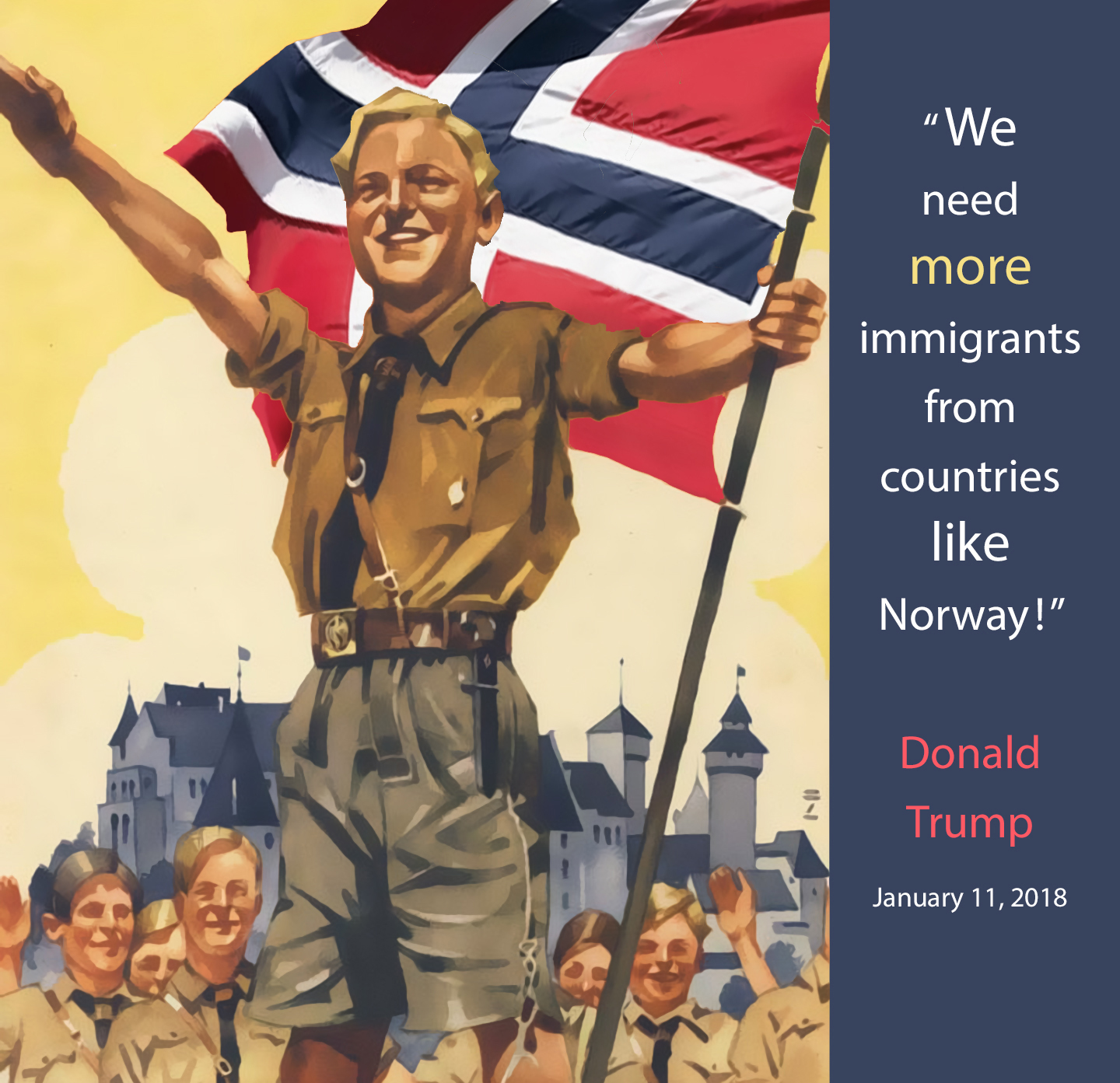Read more: The Politics of “Preferred” Immigration
On January 11, 2018, then-President Donald Trump reportedly expressed a preference for immigrants from countries like Norway. This statement sparked controversy, raising questions about how immigration policies are shaped by racial and cultural biases rather than economic or humanitarian considerations.
The image accompanying this quote is particularly striking—it resembles propaganda from the early-to-mid 20th century, evoking troubling historical parallels. Throughout history, nations have justified exclusionary policies by promoting “ideal” immigrants while marginalizing others. The implication of such rhetoric is clear: some groups are more “desirable” than others, not based on merit, but on ethnicity, nationality, and perceived cultural compatibility.
Who Gets to Be “Desirable?”
Trump’s comment came during discussions on immigration reform, where he also reportedly disparaged nations in Africa and the Caribbean. This reinforces a long-standing pattern in American immigration policy—one that has historically favored European immigrants while placing barriers on those from Latin America, Asia, and Africa.
But should immigration policies be determined by race or nationality? Or should they focus on skills, contributions, and humanitarian needs?
Learning From the Past
History warns us of the dangers of selective immigration policies rooted in exclusion. Many of the same arguments used today were employed during previous waves of immigration—whether against Italians, Irish, Chinese, or Eastern Europeans. Over time, those once viewed as “undesirable” became integral to American society.
As we navigate modern immigration debates, we must ask: Are we repeating history’s mistakes? Are we choosing who belongs based on merit, or on outdated notions of race and culture?
The conversation about immigration should be one of inclusivity, opportunity, and fairness. If we fail to recognize the patterns of the past, we risk reviving ideologies that history has repeatedly shown to be dangerous.
What do you think? How should America define its immigration policies in the 21st century?

Leave a Reply